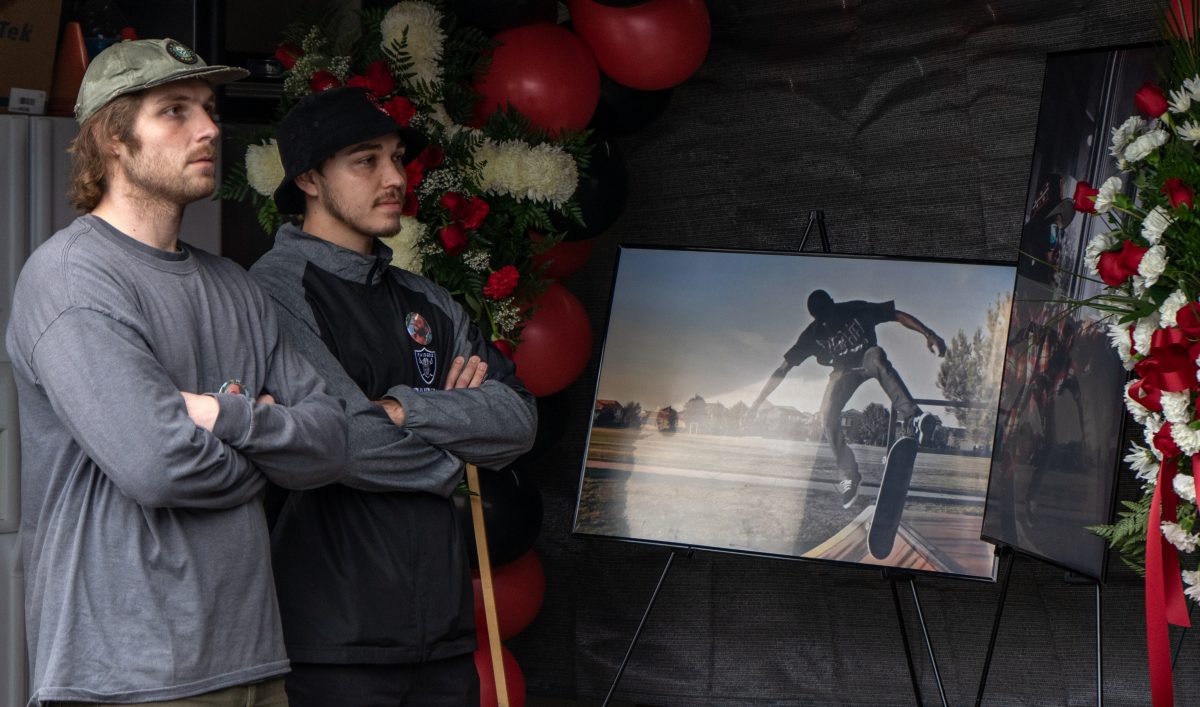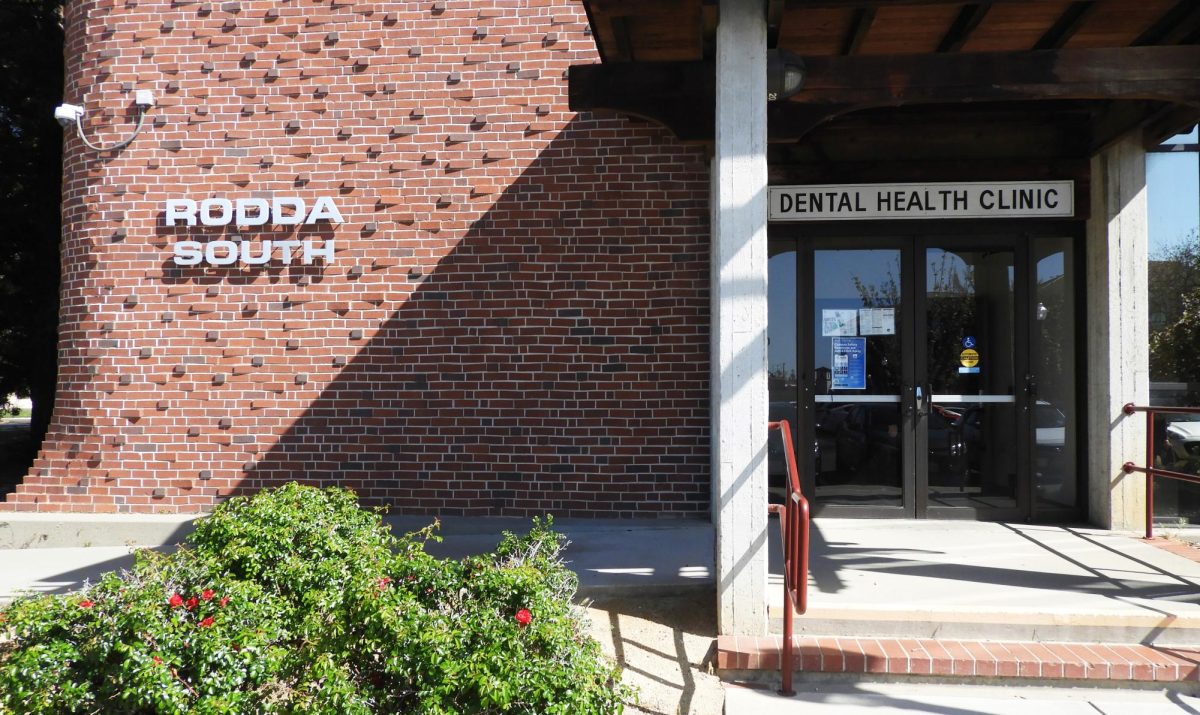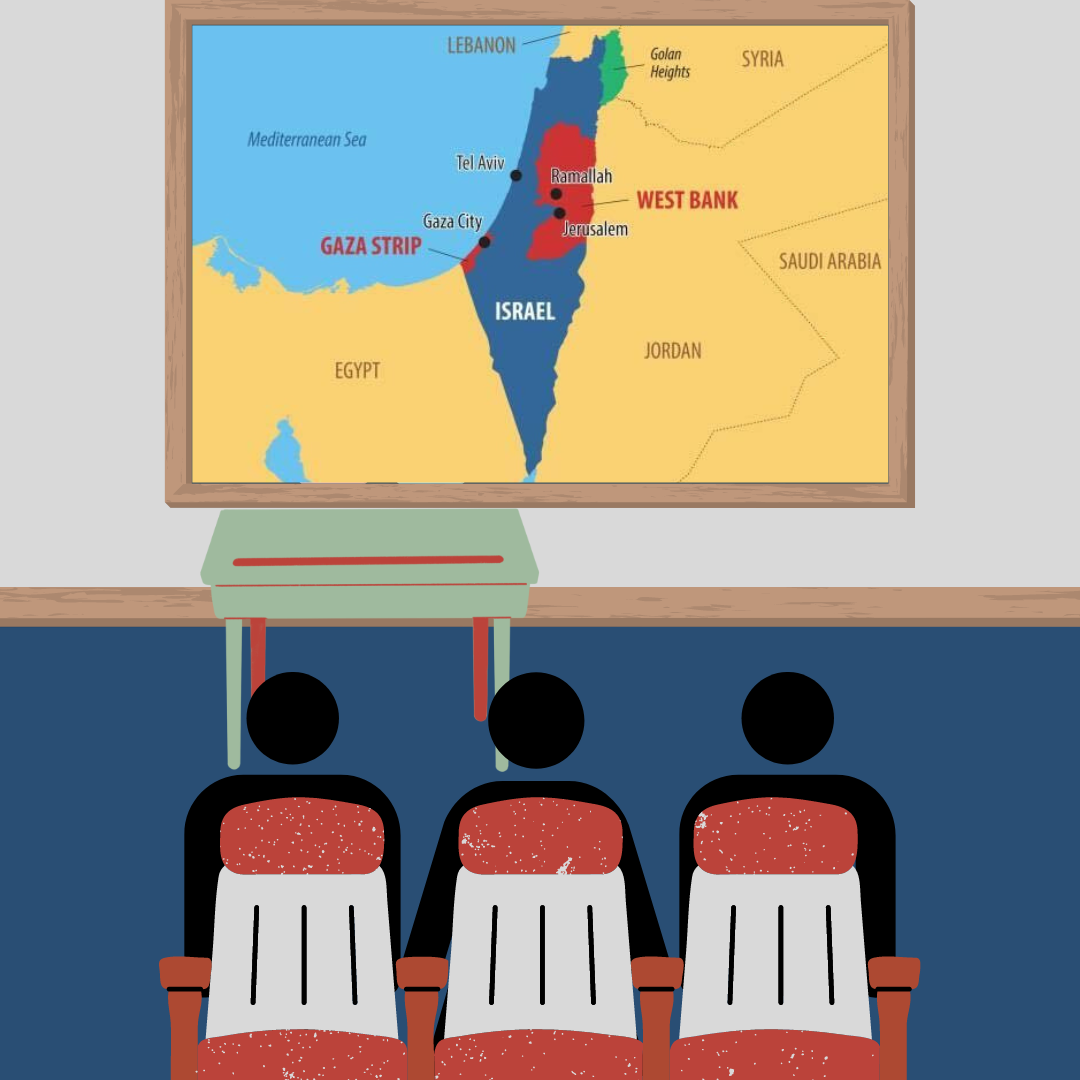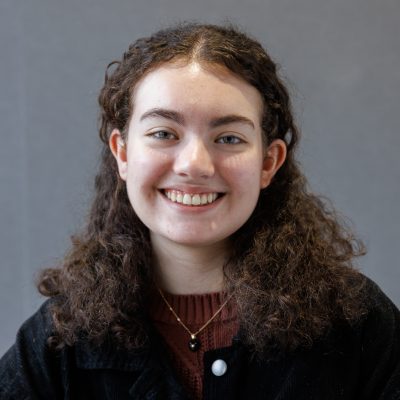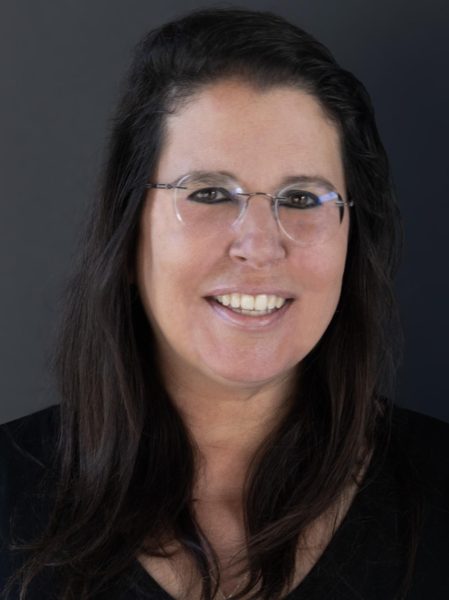In recent weeks, students at colleges across the United States have engaged in protests in support of the Palestinian cause and against Israel’s war in Gaza.
Protestors at colleges like Columbia University in New York, as well as USC and UCLA in California have set up encampments to call for a cease-fire in Gaza and for their universities to sever financial ties with Israel. As universities continue to crack down on their expressions, Reuters reported more than 2,000 protestors have been taken into custody, many of which have been injured during police’s forced attempts to break up the gatherings at some universities.
On Oct. 7, 2023, Hamas, a militant Palestinian Islamic organization, stormed from the Gaza Strip into Israel towns, killing hundreds of Israelis and taking 252 as hostages. Since the attack, Israel has responded with a mass bombing campaign plaguing the Gaza Strip, a population of 2.1 million and mostly of women and children, and has launched a total blockade which has ceased the supplies of food, aid and other essentials from being sent to civilians, according to Al Jazeera. More than 35,000 Palestinian citizens have been killed in the attacks thus far.
Although no student-led walkouts or protests have happened on the City College campus as of yet, two speakers were invited by the Global Studies Department to come to City College to share stories of their own experiences, facilitate conversations on the occupation and raise awareness for the Palestinian cause.
The first was on March 7, a day before International Women’s Day, and before the national college protests began. Palestinian writer, social activist and journalist who has reported on Gaza in the past, Laila El-Haddad, came to the City College Performing Arts Center auditorium to speak on the lived experience of women in Gaza, teach the history of the occupation, and share her own stories.
As the author of a cookbook showcasing recipes passed down from Palestinian families, “The Gaza Kitchen: A Palestinian Culinary Journey,“ El-Haddad also spoke on the intersection between food and politics, and the weight of spreading cultural recipes from one’s childhood.
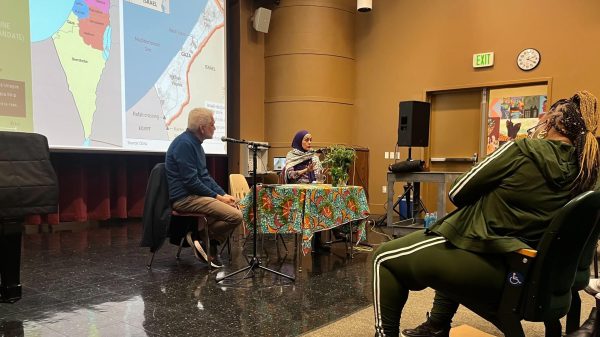
Husna Sabeer, a 17-years-old in her first semester at City College, started the Muslim Student Association, a club she brought to her high school and is now bringing to City College.
Sabeer spoke on the severity of the crisis, as the toll of Palestinians killed due to Israeli occupation exceeded 34,000, as of late February. “Entire families are wiped out…We’re hearing these numbers rack up,” Sabeer said, “But we’re getting desensitized to it and we’re forgetting that’s 40,000 different people with goals and dreams and ambitions.” Sabeer makes the connection that for those who have ever lost a family member or friend in the United States, that one person is remembered for years to come.
Sherri Patton, a City College professor of U.S. history with an emphasis on women and gender, viewed the talk as impactful, particularly due to El-Haddad’s stories of her family, coupled with the educational aspects on the history of the conflict.
Ten years ago, Patton traveled to the West Bank and claims the experience opened her eyes to the existence of Palestinians living in an apartheid state. But in the United States, in her mind, the issue was still largely a taboo topic.
Patton describes there has been a “sea change,” or a dramatic shift in perspective, among students in her history classes. “Back in the ’90s you couldn’t even talk about Palestine. But now the students are very aware. … Students are like, ‘Yeah this is wrong, this is genocide,’” said Patton.
City College English Prof. Alexandria White spoke on how the U.S. is contributing to the war. “We need to stop funding Israel,” said White. “Our tax dollars should not be going towards funding war. I think we need to help broker more diplomacy between the Palestinian people and Israel.”
According to an article by the Washington Post, the U.S. supports and funds the Israeli military, and has vetoed and abstained from U.N. ceasefire resolutions.
The second event facilitating discussions on Gaza took place in City College’s Daubert Courtyard for the Arts on April 24. professor and Coordinator of the Global Studies Department Riad Bahhur sat in front of a symbolic altar aside from Vivien Sansour, activist and founder of the Palestinian Heirloom Seed Library, an organization that seeks to preserve and promote indigenous seed varieties from the area, along with traditional farming techniques and the cultural identities that come with them — all of which have been threatened by the Israeli occupation.
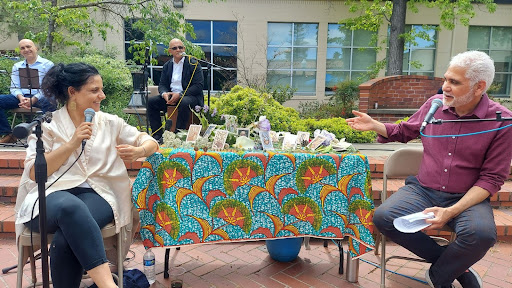
Students and faculty gathered in the courtyard, accompanied by musicians performing classic music from Gaza and the Middle East, to eat complementary Mexican-Gazan fusion cuisine from caterer Meza California, and listen to the talk, called: “Who Are We Being? Breaking Bread and Sharing Stories,” centered around mourning lives lost and building connections.
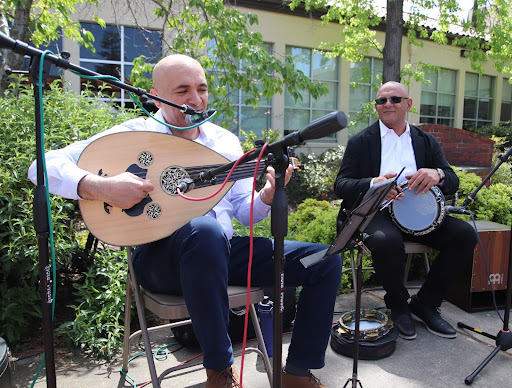
Chipo Ashe, a psychology professor and mentor at the ASHE Center, voiced how she feels being pulled in different directions as she witnesses what is happening through social media. “A lot of people that I know are at this duel place where, for the purpose of human survival we have to wake up and keep going, but the crushing feeling of everything that is going on is quite literally too much,” Ashe said.
Being active on social media means Ashe and many others are exposed to the horrors enveloping Palestinian families and livelihoods, according to Ashe, all at their fingertips. “One of the biggest key elements of it is that we’re seeing it live streamed,” Ashe said, “We’re seeing it in real time in a way we’ve never seen it before.”
This is something Ashe’s students struggle with mentally, which Ashe advises them to learn to acknowledge the heaviness they are feeling, then assess what advocacy looks like for them.
While the crisis in Gaza continues, many students at both of the talks at City College voiced concerns on not knowing what part they can or should play to help alleviate the sufferings faced by Palestinian people, or to hold their country accountable for its role in it.
Sabeer understood these questions, and said a standout way is both open support, through attending protests and displaying symbolic messages, and “Using your voice, talking to people, informing people, and speaking to them from a place of compassion.”
Additional reporting by Patricia Jones / pjones.express@gmail.com


